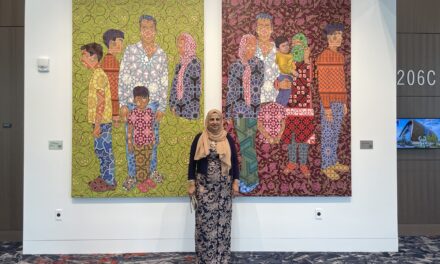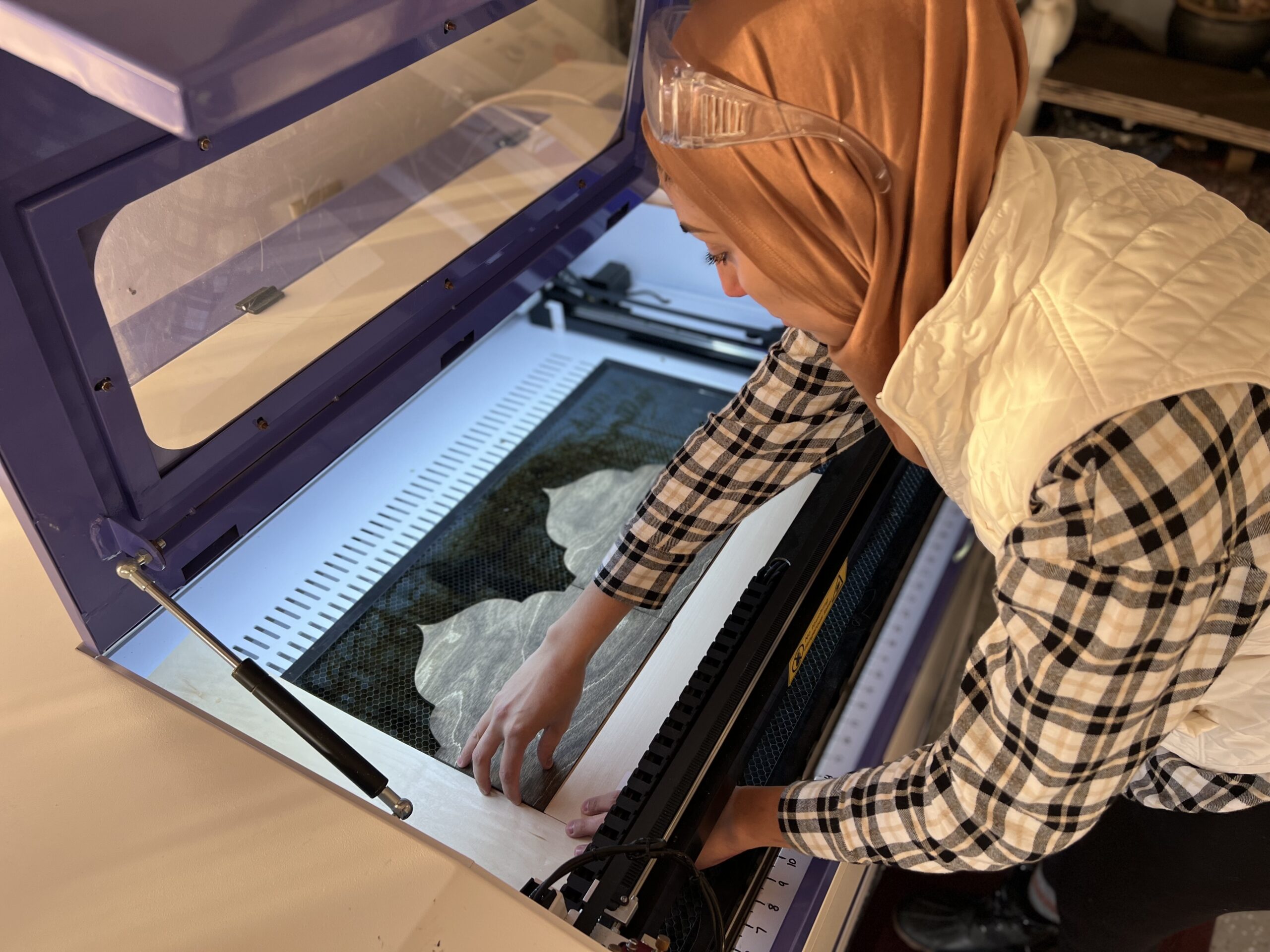
Photos courtesy of Afnan Musaitif
Designer Afnan Musaitif working in her studio using a laser machine to create her art pieces.
The stunning craftsmanship and whimsical accents of Rosewood Decor & Gifts bring sacred feelings of home and heart into every room. Afnan Musaitif sells handmade treasures that reflect personal, sentimental themes of faith, culture and identity, encompassing different mediums ranging from wood to embroidery to acrylic. The Rosewood Decor & Gifts motto is “Original products that showcase YOU.”
A lifelong artist, Afnan Musaitif grew up embracing a DIY spirit when it came to creative projects. “I love seeing the potential in something,” she elaborates. “I don’t want to just buy something brand new necessarily. I want to personalize it and make it more special or unique.”
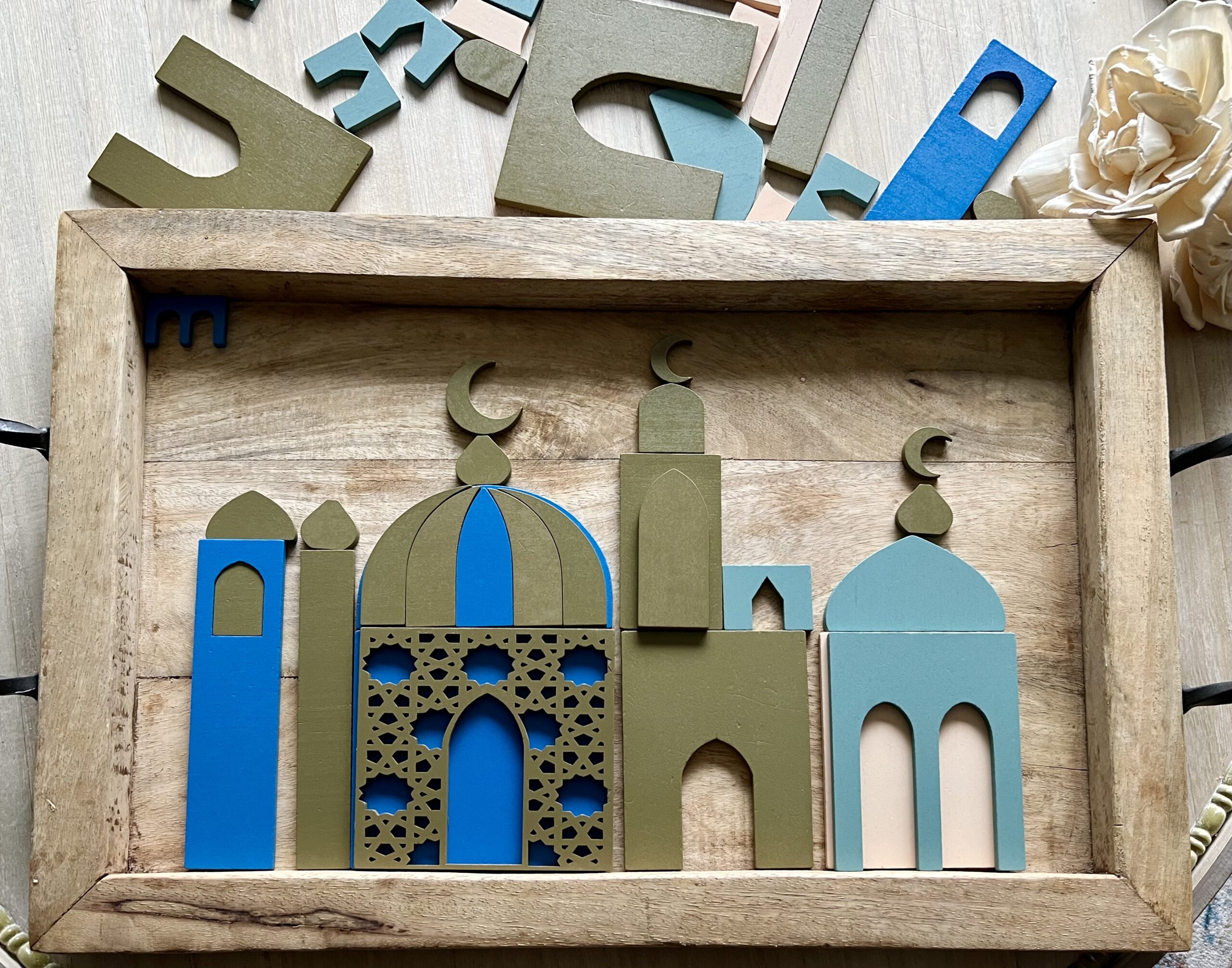
When Musaitif launched Rosewood Decor & Gifts, originally as Serene Art & Designs in 2020, she wanted to combine her passions for art and making things with her culture and identity as a Palestinian Muslim woman.
She began by purchasing a Cricut vinyl sticker machine, using it to create stencils for painting letters and shapes on wood to make door signs. When Ramadan came around, Musaitif opted to make themed decorations like Islamic block calendars, table signs and childrens’ puzzles.
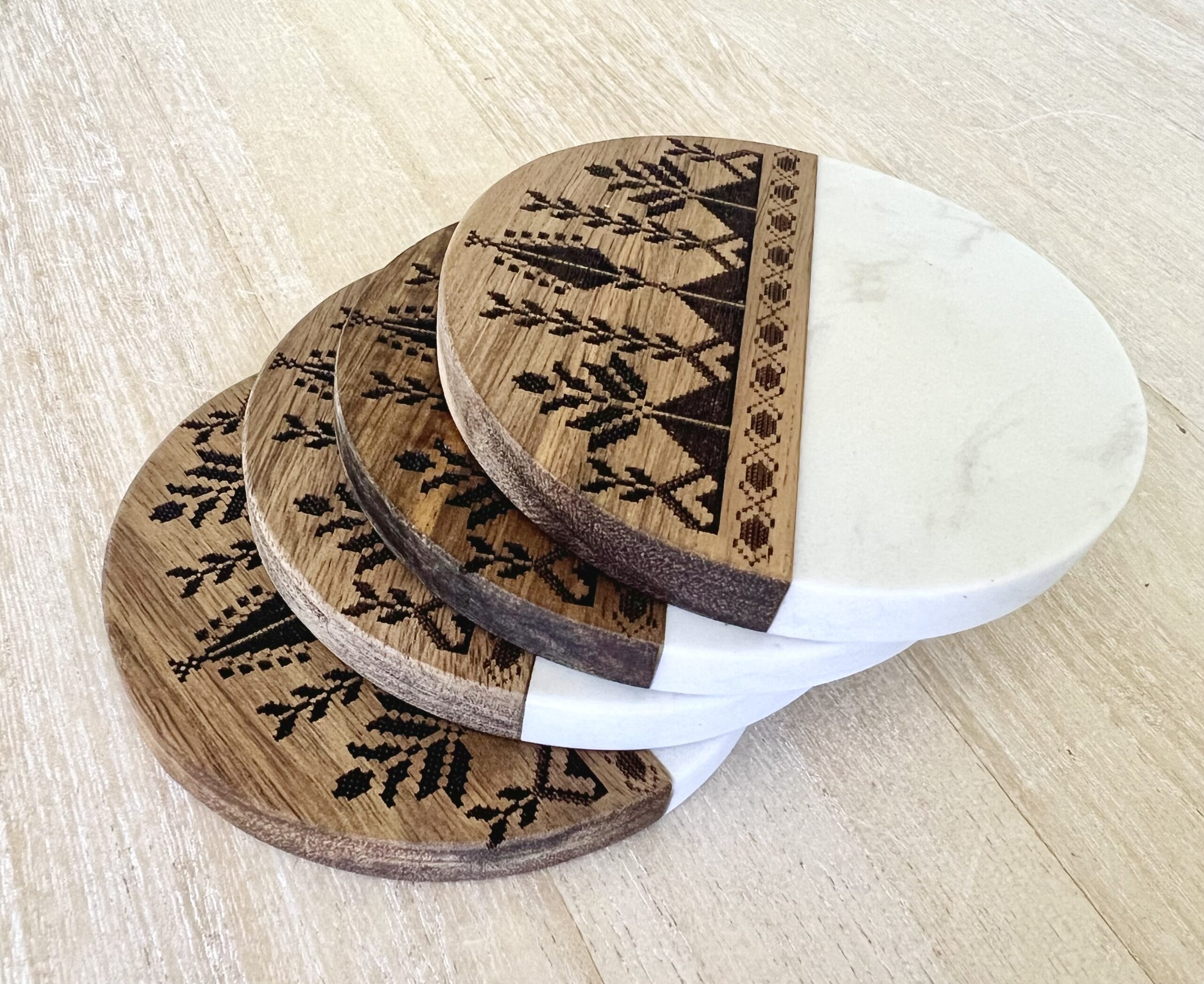
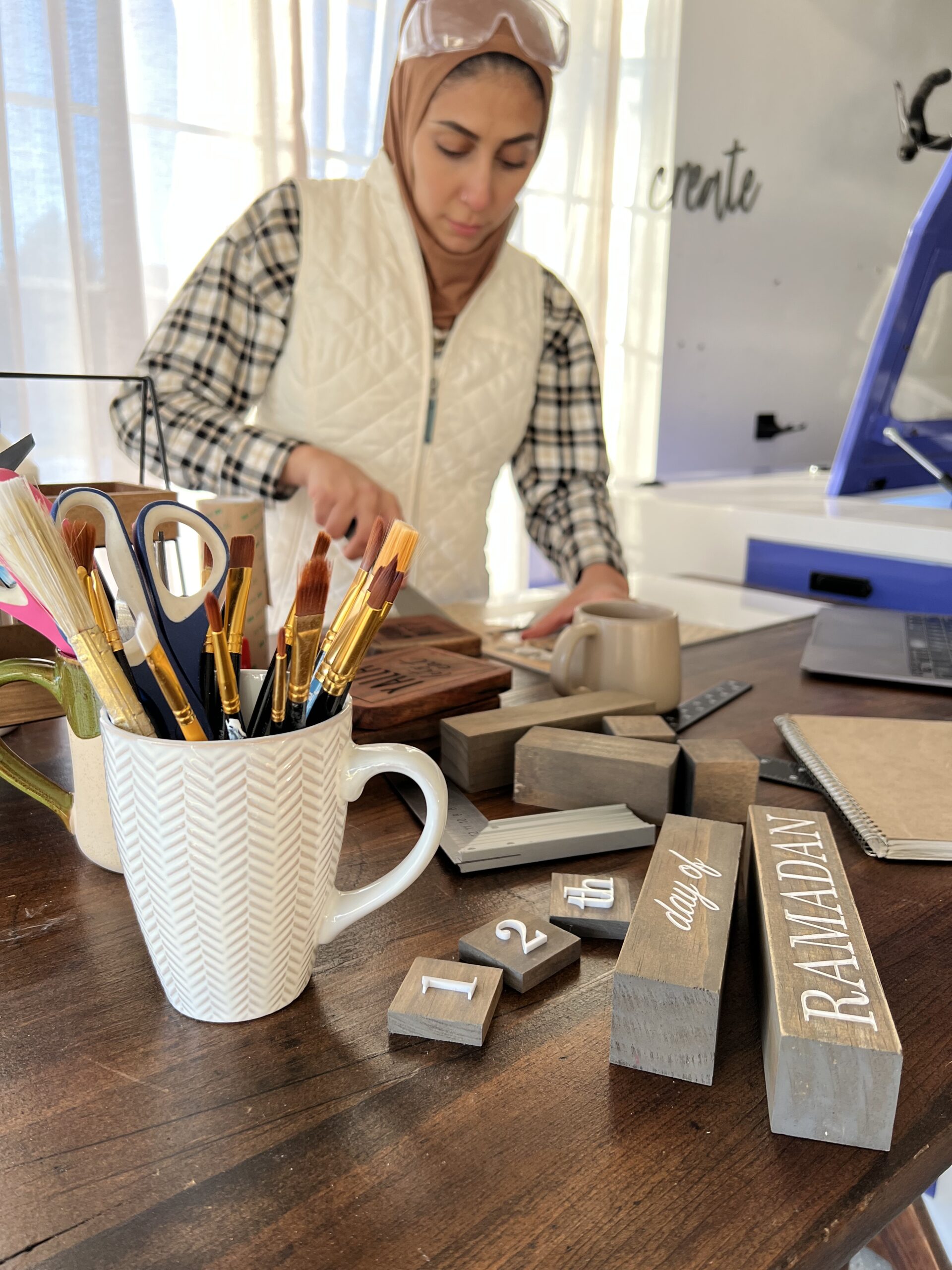
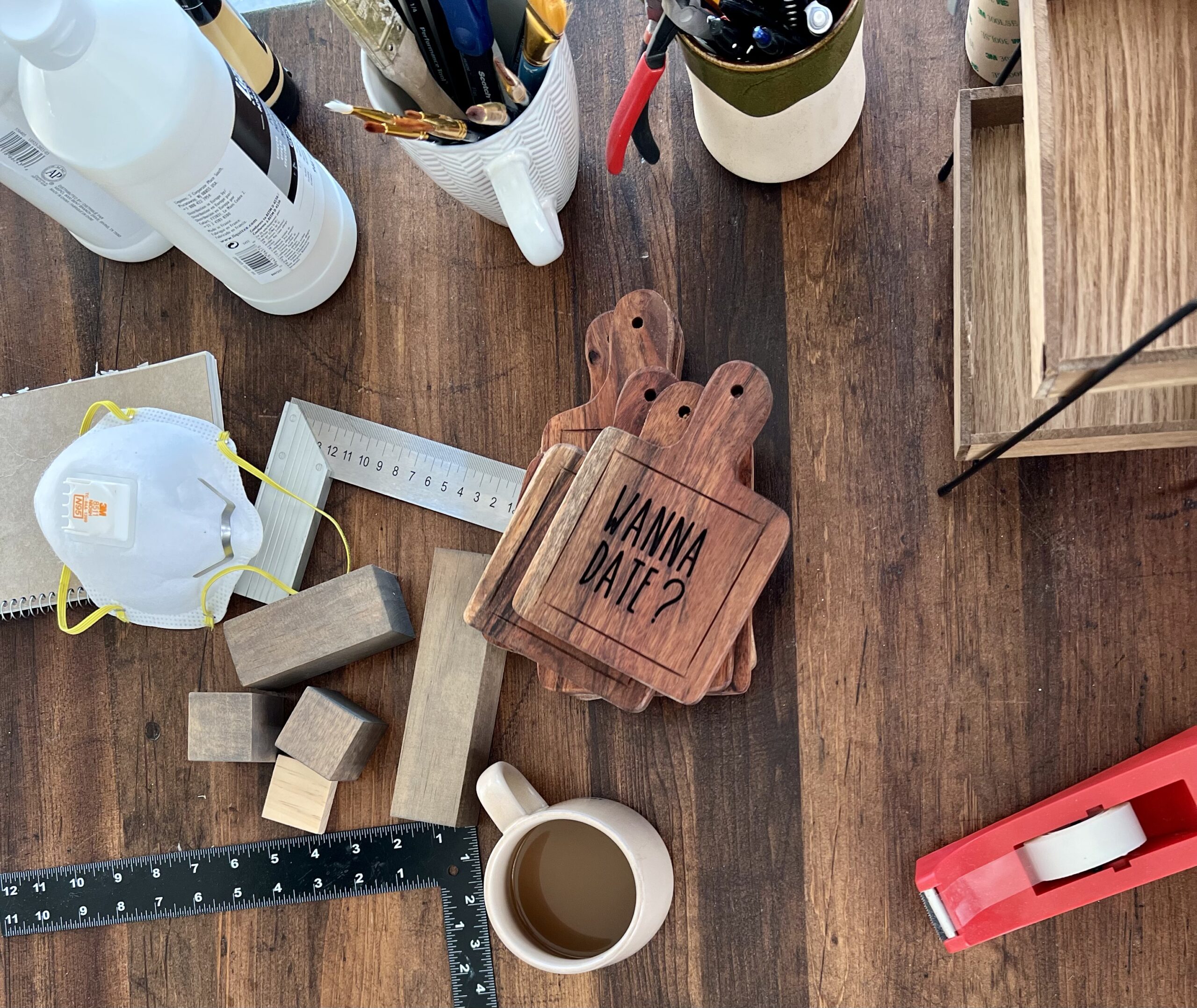
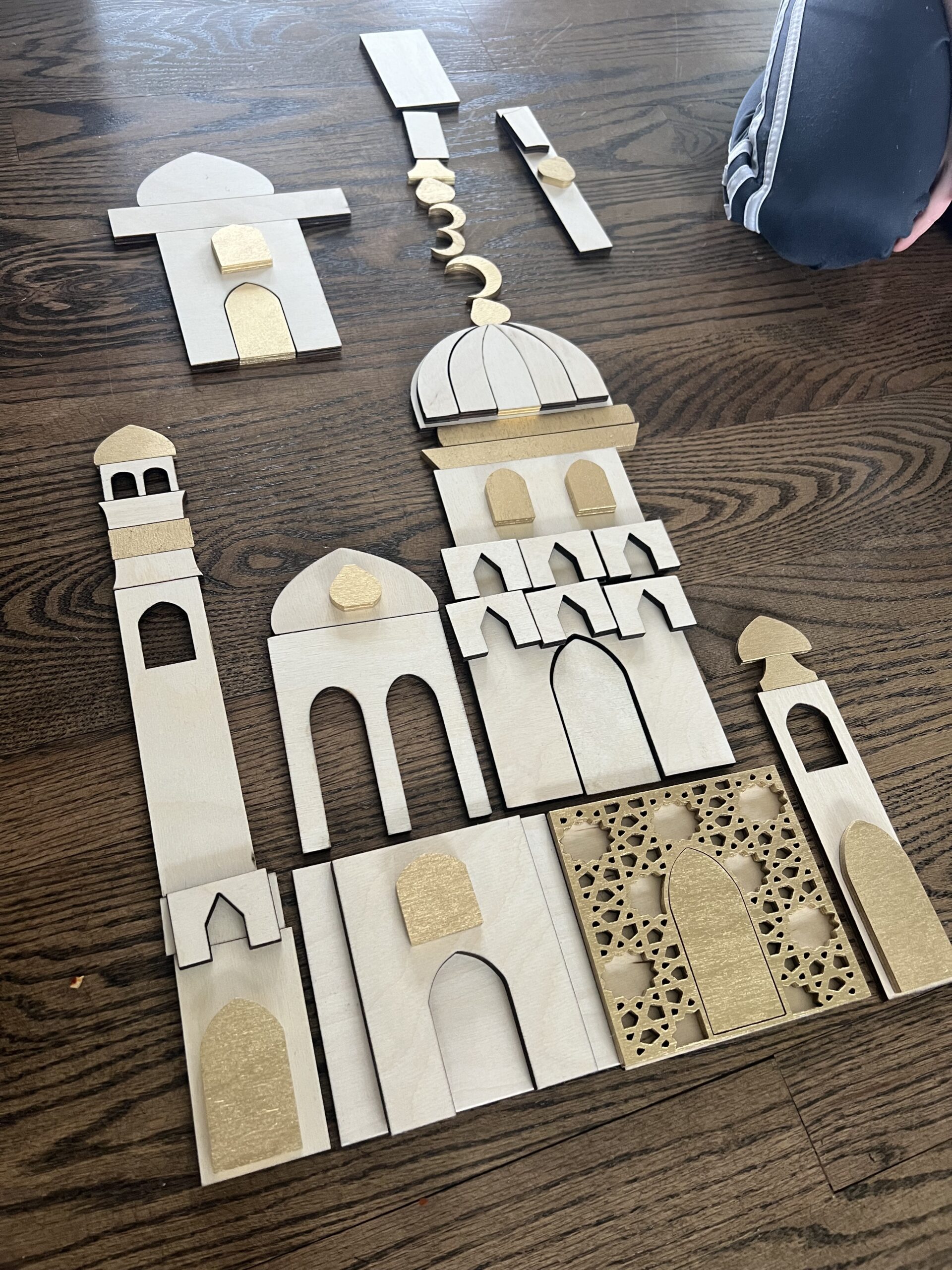
Working as a psychologist by day, Musaitif finds crafting art in any of her three home workshops to be a powerful form of escapism. “It’s a really nice way for me to come home and do something for me that is quiet,” she affirms. “I can put my earbuds in and just create, almost on a level of self-care.”
When designing Rosewood products, Musaitif thinks of how she would typically decorate her own space and the specific niches she can fill. “There’s a lot of awesome brands out there that I look up to as a creator,” she adds. “I look at what gaps are there, and that’s where a lot of my ideas first came from.”
After the Islamic block calendars proved quite popular, Musaitif continued to branch out with new products like Lazy Susans, cutting boards, coasters and most recently tatreez art.
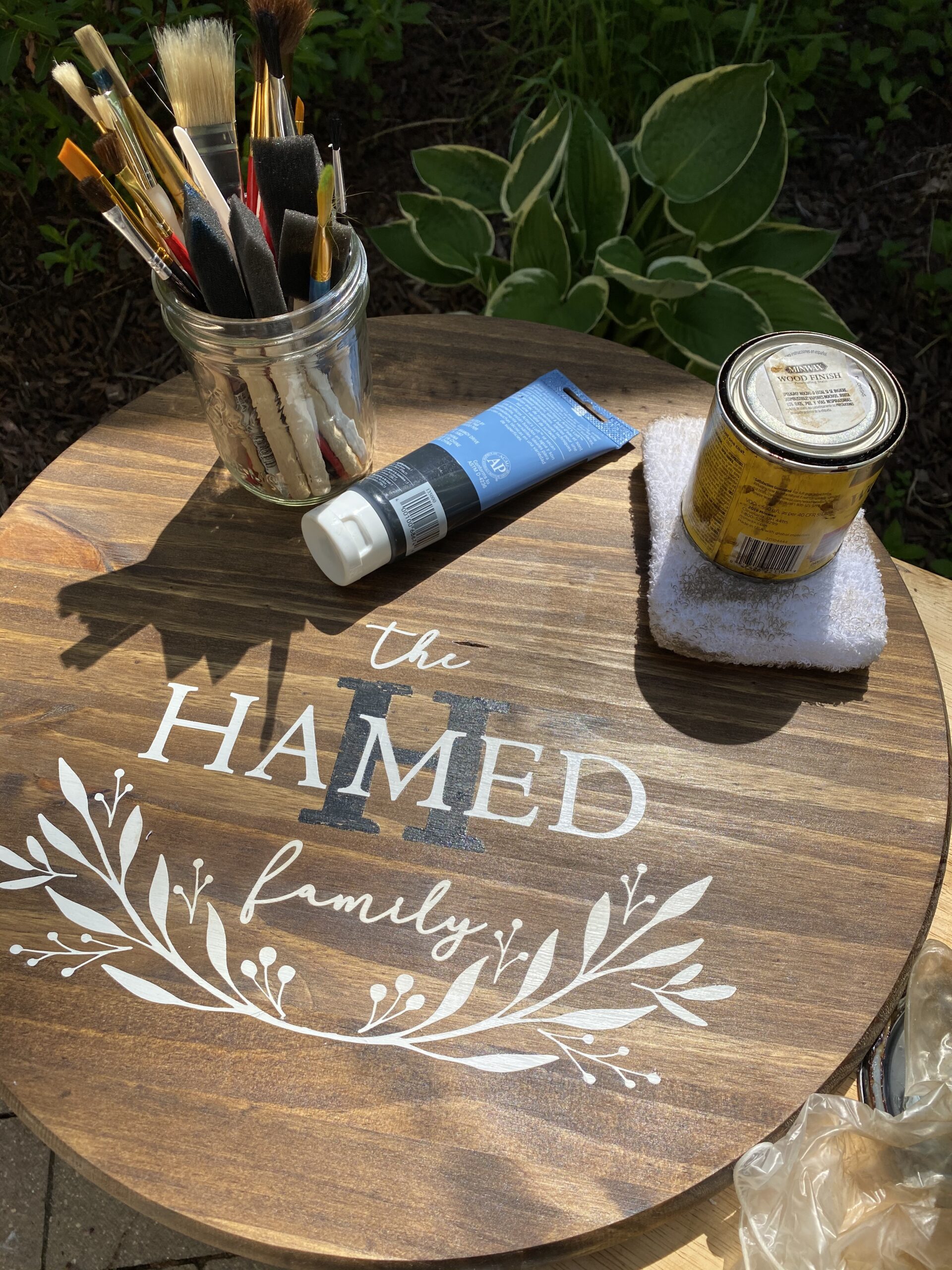
“I wanted to move away from the religious piece and move more broadly to cultural pieces as a Palestinian,” she says, referring to her latest offerings. “I have been researching and collecting a lot of books where I’ve been learning about Palestinian and Islamic design and motifs, and the meaning behind every image.”
Studying such artistic heritage has empowered Musaitif to truly embrace her Palestinian identity and culture through Rosewood artwork and decor. She continues, “It’s been giving me a lot of strength, especially nowadays with what’s going on in Palestine. It makes me feel like I can do something to preserve my culture as my people are dying and as our culture is trying to be erased. I can do something to keep that alive.”
Once Musaitif invested in an embroidery machine, she was able to start crafting textiles like napkins and kitchen towels, incorporating cultural accents of Palestine into those as well. “I embroidered a special motif that means a lot to me, the cypress tree from Ramallah, the region that I’m from,” she explains.
For wood pieces, Musaitif cuts, sands, stains and seals each by hand in her workshop. Then she uses a laser machine for engravings onto the wood. A separate studio space of hers is designated for activities like painting, finishing, packaging and computer designing.
“The personalized signs and wood calendars are more intricate, and there’s a lot of pieces,” Musaitif mentions. “With the volume of sales I’ve been making, I’ve realized that I cannot make batches of five or ten, so I make them like an assembly line. One day I’ll be a woodworker, and the next day I’m a painter.”
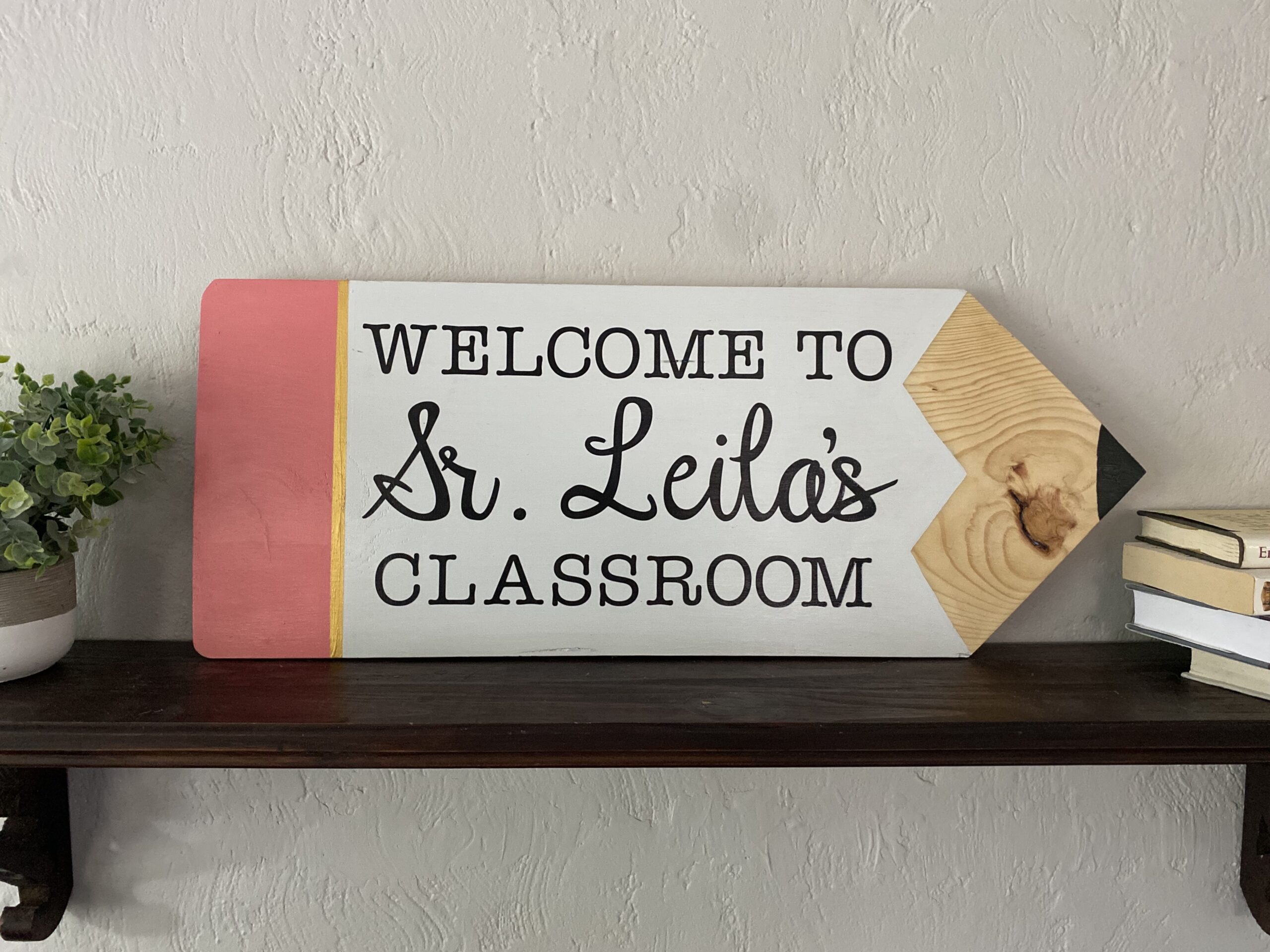
The procedure for making a single Rosewood piece typically takes a few days, but making whole batches of products elongates the process up to a couple weeks. Several of Musaitif’s tatreez pieces are made by way of a technique known as ‘foil art’ which involves either embossing foil with the Cricut machine or using heat to transfer foil to material.
“I love muted, natural things like wood, but I also like a little shimmer,” she remarks. “I like dipping textured paper in water to manipulate it, then ironing it to make it flat again and get real nice edges. A lot of those details I really care about.”
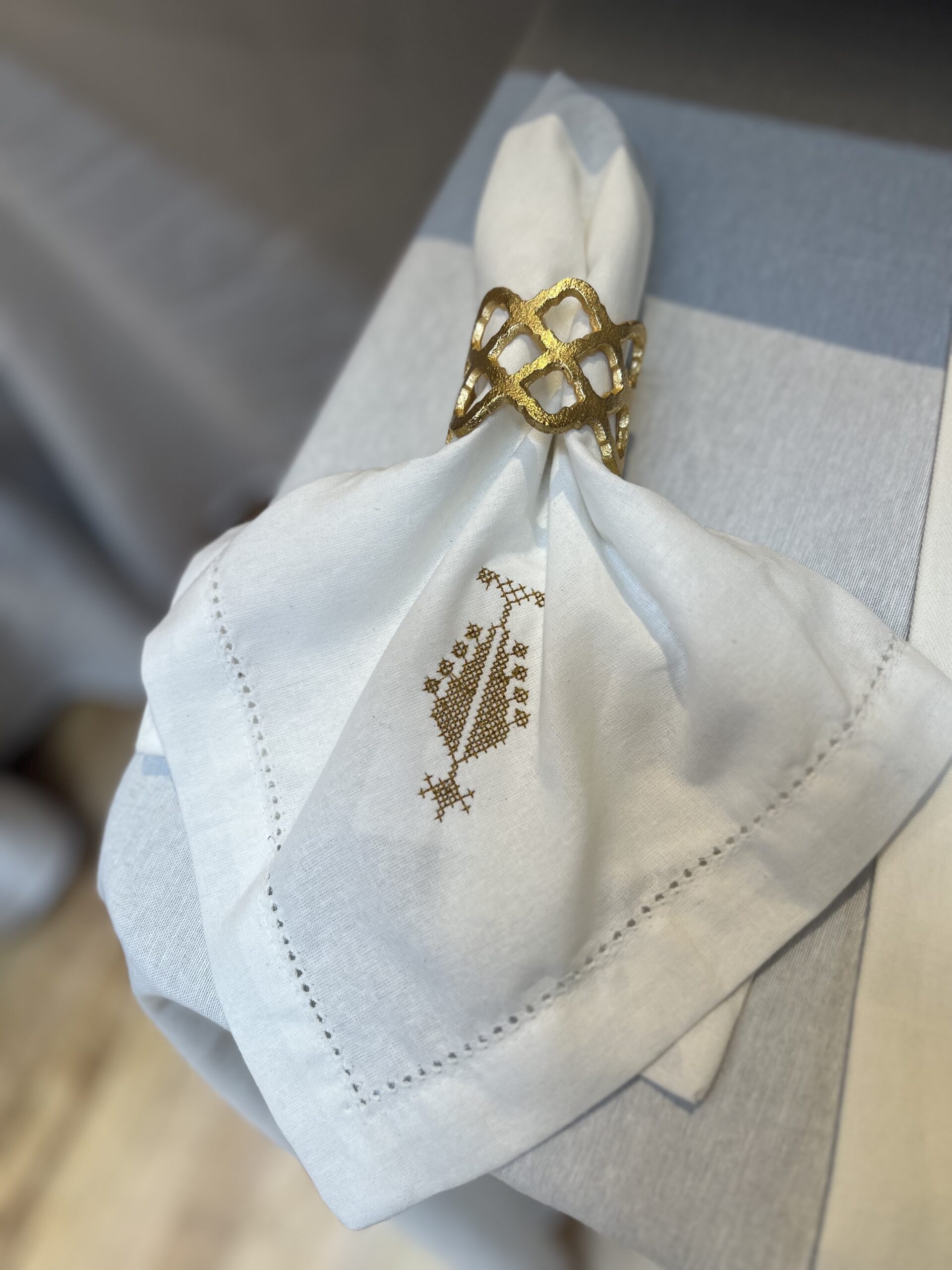
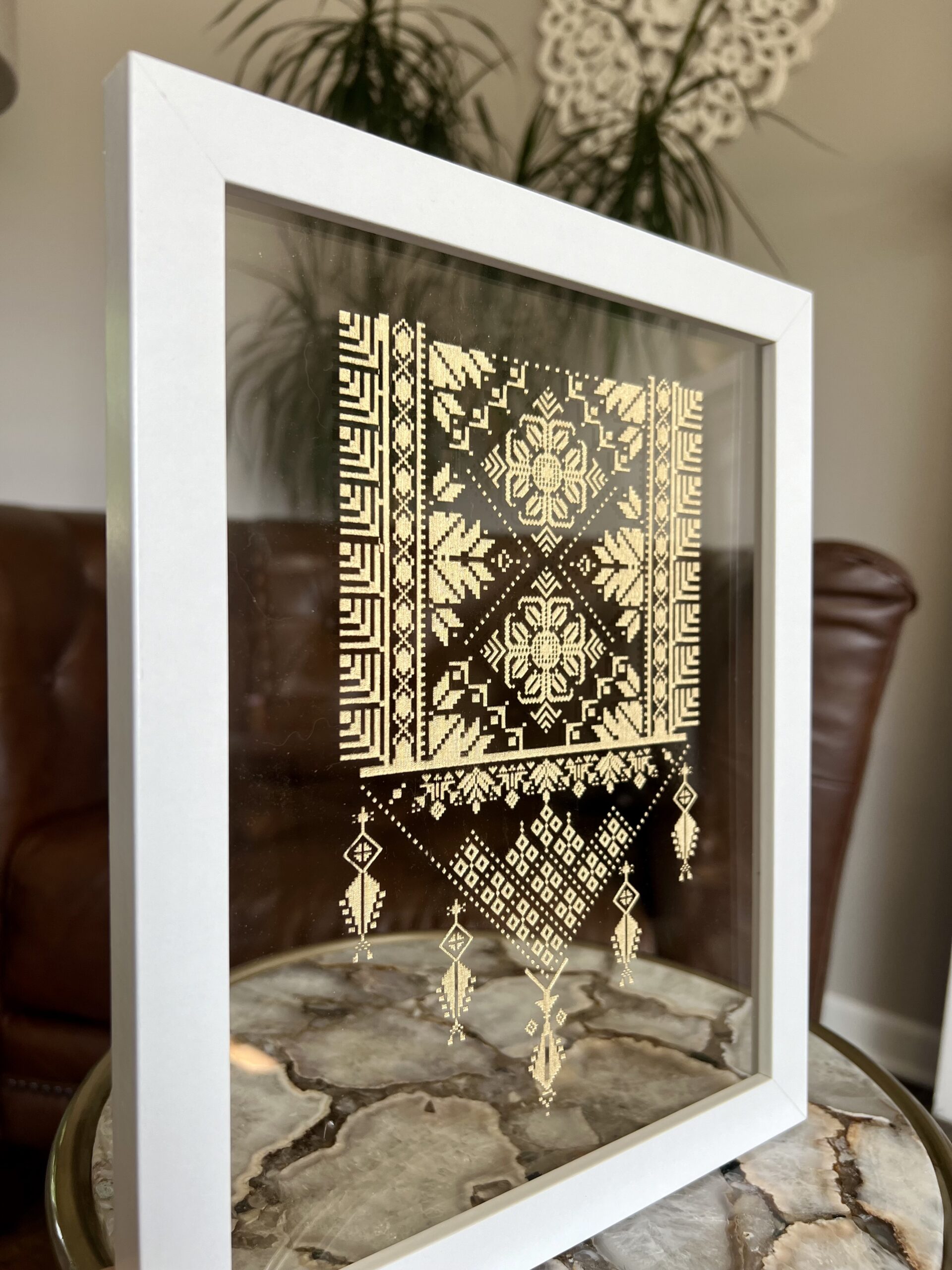
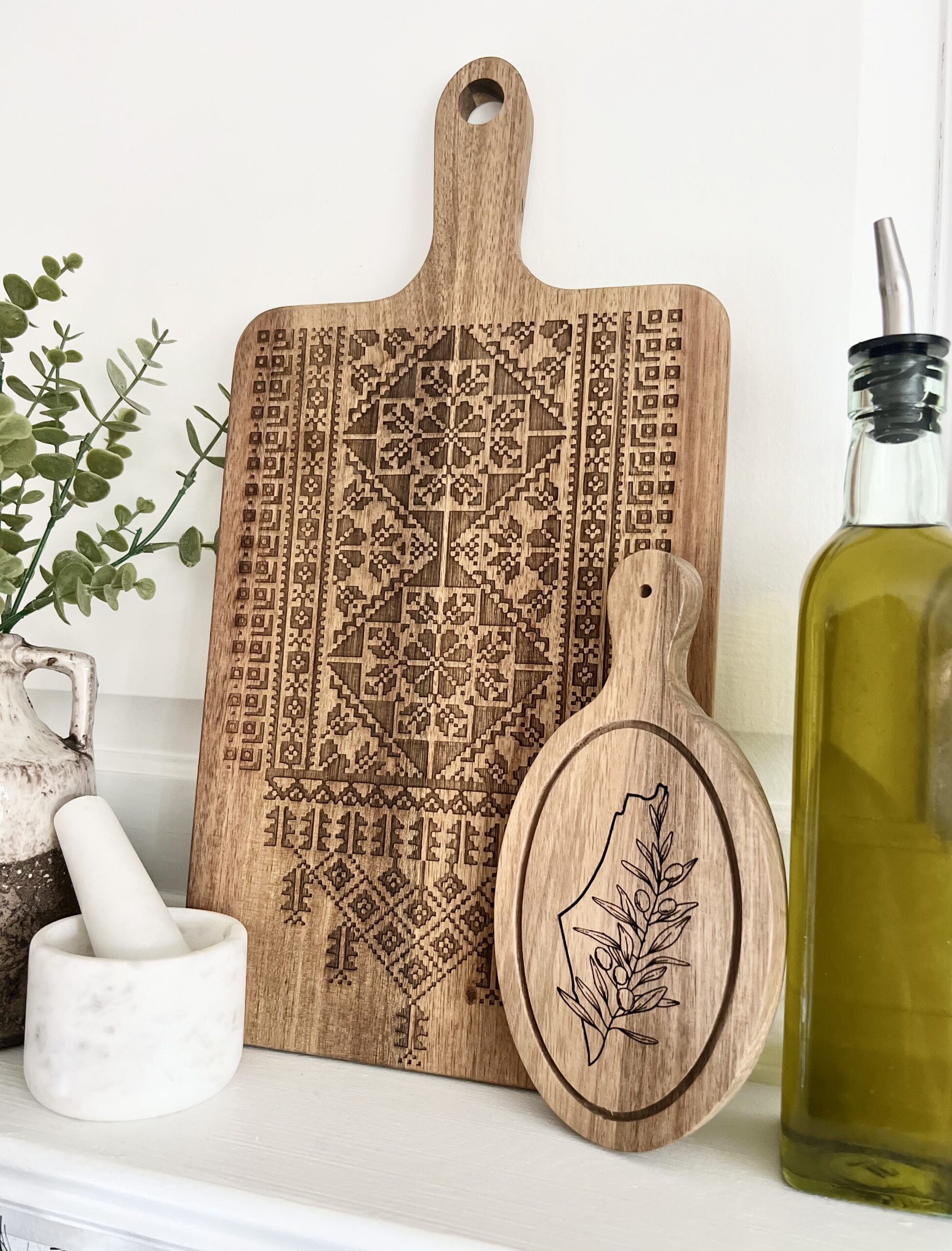
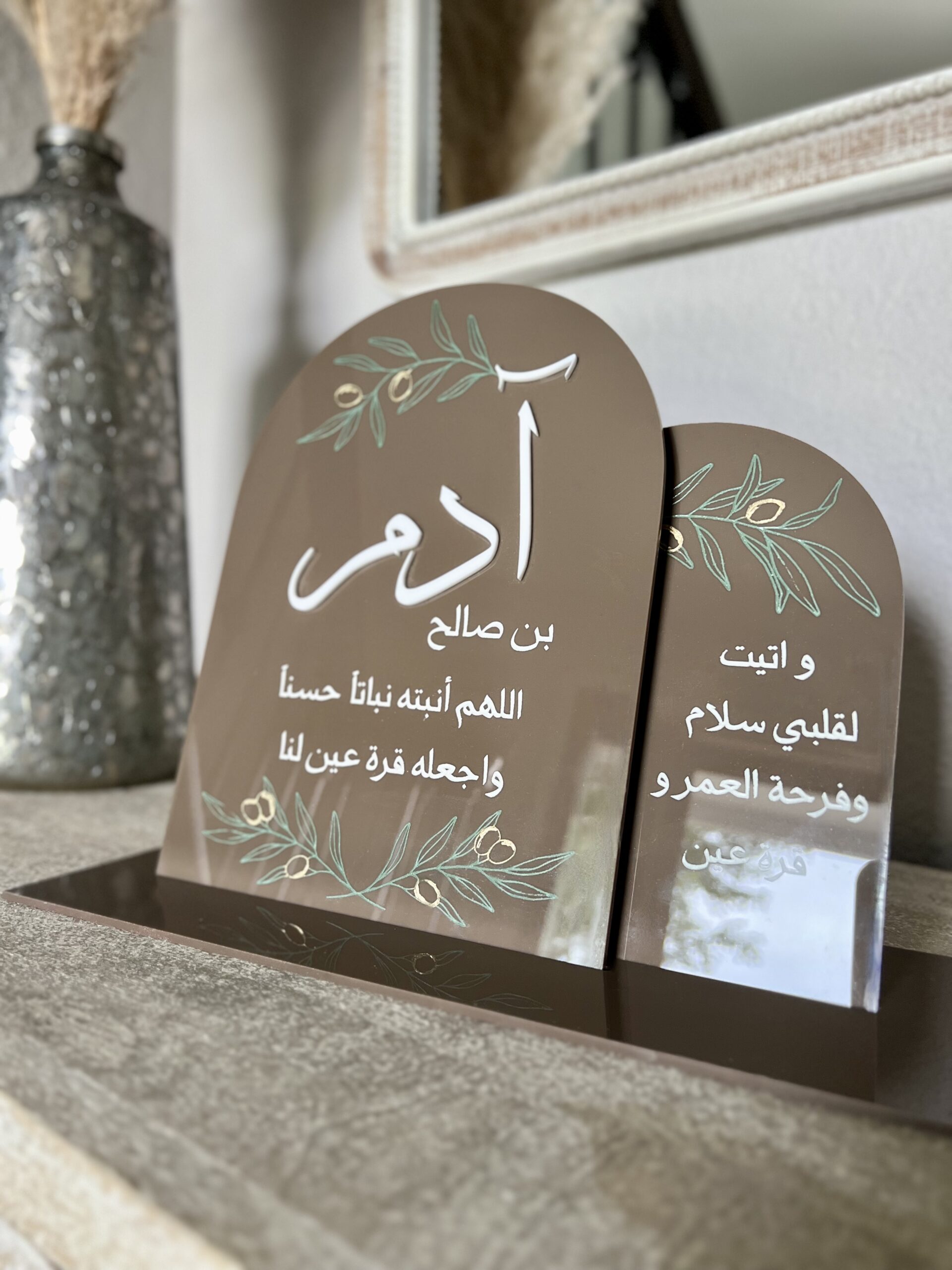
As a cautionary tale, Musaitif details an incident where she found out that her designs had been copied online, taking her completely by surprise. “I had to put out cease and desist orders against a big manufacturer. I was online and saw my wood calendar with my photos pop up on Amazon, and it was undercutting me in price. I was like “oh my God, people are going to think this is my product.””
In order to protect her designs moving forward, Musaitif angled and watermarked all her photos on Etsy. She has talked to fellow sellers who have had similar things happen.
“It’s important for people to know that it happens, specifically on Etsy,” Musaitif attests.
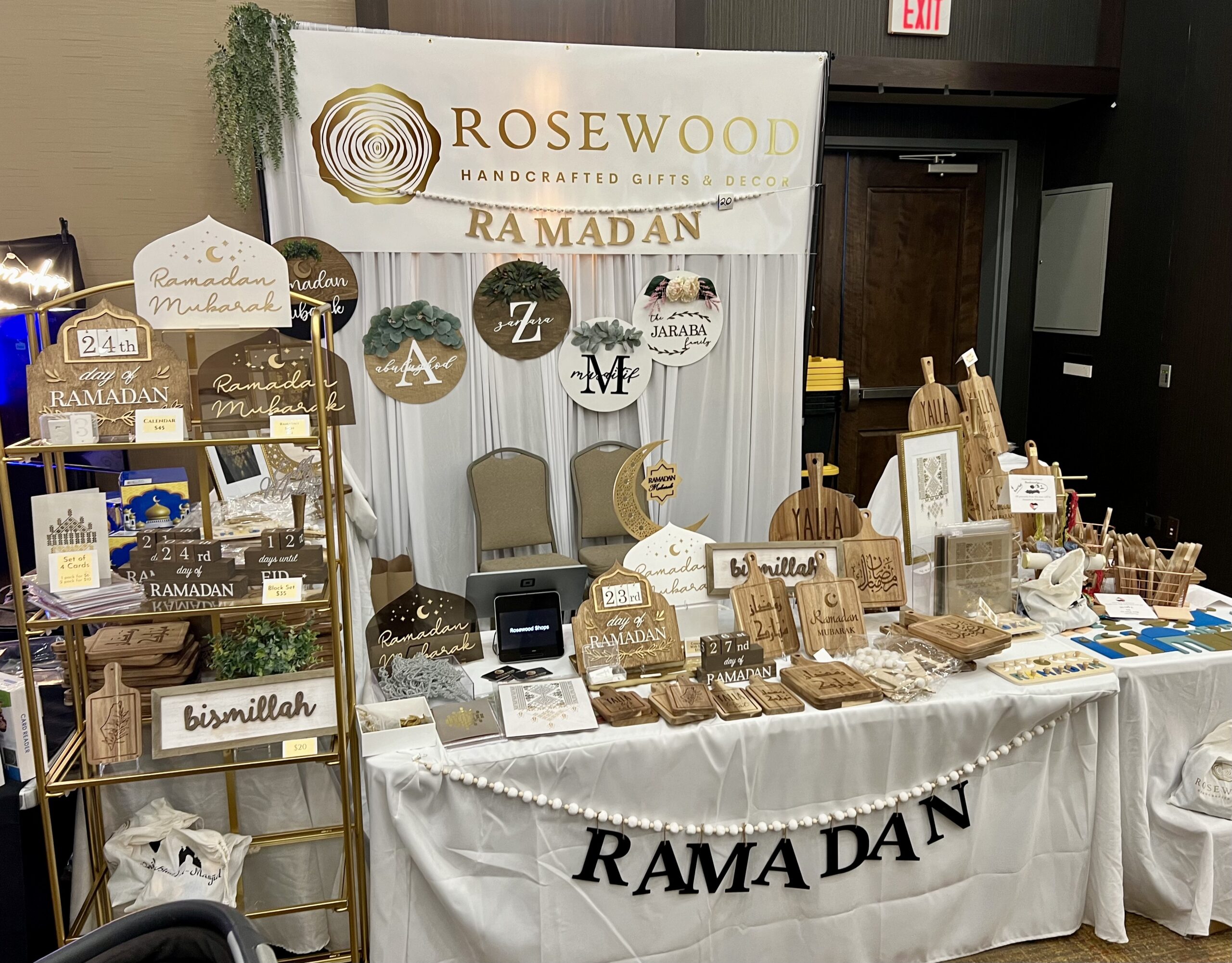
Rosewood Decor & Gifts showcasing the many handmade crafts and gifts at markets and bazaars.
Most of Musaitif’s sales currently occur on Etsy, but one of her goals is to move more sales to the Rosewood Decor & Gifts website, https://rosewoodshops.com/. Her Instagram handle is @rosewood_decorandgifts.
In addition to the online store, Rosewood Decor & Gifts vends at markets and bazaars, usually every few months. “It takes time for me to make the products and have an inventory, then dedicate that weekend to selling and recoup from that,” Musaitif notes about vending. “My garage is still full from the last market.”

From left, Hasan AbuLughod, Afnan Musaitif and their daughter Mariam posing in front of a banner Musaitif made by quilling paper flowers.
Past events that Rosewood Decor & Gifts has vended at include QUADM Chicago in August, a Palestine Children’s Relief Fund benefit at Shorewood’s Cloud Red in May, the Ramadan Moon Market at Naperville’s Jannah Circle in March, and MASCON in Chicago last December.
While Ramadan has typically been the busiest time of year for Rosewood Decor & Gifts, Musaitif has recently noticed a steadier stream of sales throughout this year, noting, “That’s a really great sign for the business. Something’s clicking and it feels good.”
Afnan Musaitif wants to incorporate more textiles into her inventory next but is taking her time perfecting the concepts first. “That’s a really big part of my business model,” she concludes. “It’s not about getting as many products out there as possible. I want each piece to have a strong meaning behind it.”
Eventually she would like to hire a few people to help her as well, chuckling, “That would be really nice.”


